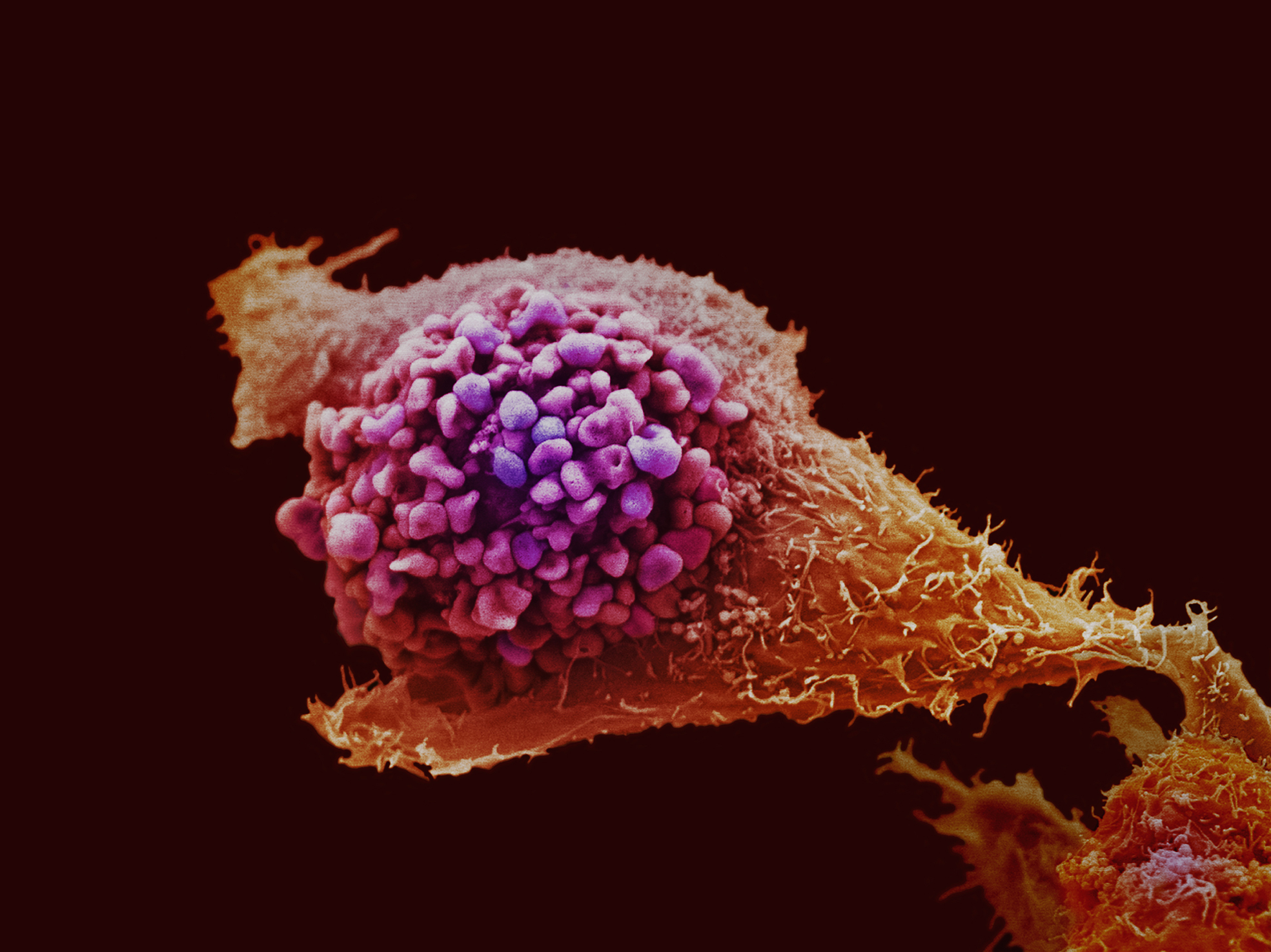Quick fire facts on cancer
Interview with
Naked Scientists Tim Revel and Georgia Mills have some quick fire facts and misconceptions  about cancer...
about cancer...
Tim - There are over 200 different types of cancer. But genetic research suggests that every cancer may be unique to the individual.
Georgia - Cancer causes your cells to divide abnormally which then starts spreading around the body.
Tim - Abnormal cell division leads to the extra cells building up in a clump, which is called a tumour.
Georgia - But not all cancers make tumours - for example, leukaemia.
Tim - There are over 14 million cancer cases worldwide each year, causing around 8 million deaths.
Tim - Often, the cancerous cells prevent healthy cells from doing their job correctly.
Georgia - Radiotherapy, chemotherapy and surgery are three of the most common cancer treatments.
Tim - And they are often used in combination.
Georgia - Surgery has the best overall success rate.
Tim - This method aims to directly cut out cancerous cells from the body.
Georgia - While radiotherapy involves precisely firing high energy rays at cancer cells and eventually causing them to die
Tim - And chemotherapy uses drugs instead of radiation to achieve the same effect.
Georgia - Now, for some myth busting: fact or fiction...
Tim - Cancer is a recent man-made disease.
Georgia - Fiction.
Tim - Cancer was described by the ancient Egyptians and the ancient Greeks
Georgia - And has been detected in mummies, early skeletons and even in dinosaurs.
Tim - Cancer is on the rise, but that's mostly because we are living longer.
Georgia - As well as smoking, drinking and eating too much.
Tim - Super foods prevent cancer.
Georgia - Fiction.
Tim - There is no such thing as a super food. It's a marketing term, not a scientific one.
Georgia - A diet rich in all kinds of fruit and veg will help to reduce your cancer risk. But eating a few trendy berries on top of an unhealthy diet isn't going to be much help.
Tim - Cancer treatment kills more than it cures.
Georgia - Fiction.
Tim - Now, it is true that a lot of people die after cancer treatment.
Georgia - But this is usually because the treatment just didn't work or came too late and people succumb to the disease.
Tim - Cancer treatments are not without their risks, but new treatments and earlier diagnoses have increased the number of survivors.
Georgia - Many cancers still have poor outlooks, but there are some success stories.
Tim - 96% of men diagnosed with testicular cancer are now cured...
Georgia - ...compared with only 70% in the 1970s.
Tim - Three quarters of children with cancer are now cured...
Georgia - ...while only a third were in the '70s.
Tim - It's still a big problem, but we know more about cancer now than ever before.










Comments
Add a comment